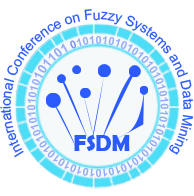Invited Speaker

Dr. Renying Zeng, Professor
Key Laboratory of Optimization and Control—Chinese Ministry of Education, China, Chongqing Key Laboratory of Operations Research and System Engineering, China; Saskatchewan Polytechnic, CanadaSpeech Title: Proximal Analytic Center Cutting Plane Algorithms for Variational Inequalities and Nash Equilibrium
Abstract: Nash equilibrium is a concept in game theory where the game reaches an optimal outcome. It is a situation in which every player in a competitive game may maximize their result depending on the choices made by the other players. This is a state that gives individual players no incentive to deviate from their initial strategy. The players know their opponent’s strategy and still will not deviate from their initial chosen strategies because it remains the optimal strategy for each player. Someone can receive no incremental benefit from changing actions, assuming that other players remain constant in their strategies. A game may have multiple Nash equilibria or none at all.
Nash equilibrium helps economists understand how decisions that are good for the individual can be terrible for the group.
Nash economic equilibrium itself may not be part of data science. However, it talks about marketing and prices, etc. and does provide big data.
(John Forbes Nash, Jr. (June 13, 1928 – May 23, 2015), known and published as John Nash, was an American mathematician. In 1950, John Nash contributed a remarkable one-page PNAS article that defined and characterized a notion of equilibrium for n-person game. This notion, now called the “Nash equilibrium”. Nash was awarded the 1994 Nobel Prize in Economics.)
Recently, S. Y. Balaman used cutting plane methods to solve problems in management of biomass-based production chains; V. Franc, S. Sonnenburg and T. Werner as well as Y. Makarychev et. al discussed the applications of cutting-plane methods or other iterative algorithms in machine learning; Y. Wang, T. van Bremen, J. Pu, Y. Wang & On. Kuzelka used iterative algorithms in artificial intelligence.
The speaker is the first one to use proximal analytic center cutting plane algorithms to solve Nash equilibrium problems.
Biography: Dr. Renying Zeng received his Ph.D. degree in Mathematics from University of Regina, Canada. He spent one month shorter than three years to complete his Ph.D. research and study. His Ph.D. supervisor Dr. Douglas Farenick was the vice president of Canadian Mathematical Society. After receiving his doctorate degree, Dr. Jonathan Borwein (who was President of Canadian Mathematical Society) offered him a Visiting Researcher position at Simon Fraser University, Canada. Dr. Zeng was a Visiting Professor at North Dakota State University, USA, from August 2001 to August 2003. He was also a professor in the Business School at Chongqing University, a professor in the College of Mathematical Sciences at Chongqing Normal University, China.
Dr. Zeng received the “Excellent Faculty Award” from Chongqing Normal University for his excellence in teaching and research. He was also a recipient of “Excellent Research Article Award” from Chongqing Society of Science and Technology, as well as a recipient of “Excellent Research Paper Award” of the Society of Industrial and Applied Mathematics of Sichuan Province. Dr. Zeng was a director of Chinese Society of Decision-Making Science, a director of the Society of Industrial and Applied Mathematics of Sichuan Province, and one of two chairmen of Functional Analysis Society of Chongqing City. (City of Chongqing has a population of 32 million and more than two dozen of universities).
Dr. Zeng is a lead faculty at Saskatchewan Polytechnic in Canada from 2003 to at present. From 2010 to at present, Dr. Zeng is a professor at Key Laboratory of Optimization and Control—Chinese Ministry of Education, and a professor at Chongqing Key Laboratory of Operations Research and System Engineering. He is an editor, guest editor, and/or reviewer of some academic journals such as Journal of Optimization Theory and Applications, Optimization, Asia-Pacific Journal of Operational Research, Linear Algebra and Applications, Mathematics (MDPI), American Journal of applied Mathematics. Dr. Zeng has more than fifty research articles published, including some Web of Science JCR Q1 journals, such as Mathematics, Optimization, Journal of Inequalities and Applications, Journal of Optimization Theory and Applications. He also participated in a government funded large project in operations research—Regional Plan of Leshan City, China.
